Pictured above: [Left to right] From Ndlambe Municipality: Director Community Protection Services Ms Booysen-Willy and Fanie Fouché, Deputy Director: Community Protection Services.
From WESSA: Mike Denison, Coastal Programme Senior Manager and CEO, Cindy-Lee Cloete.
South Africa’s 2025/26 Blue Flag and Green Coast season has been officially launched, with 97 sites and operators honoured for excellence in coastal management and sustainable tourism. From urban beaches to community-led Green Coast projects, WESSA continues to celebrate partnerships that protect our coastlines and build a nation of People Caring for the Earth.
A celebration in Port Alfred
Co-hosted by Ndlambe Municipality at the Royal St. Alfred Hotel, the 2025/26 Blue Flag and Green Coast Awards ceremony marked two milestones, 25 years of Blue Flag in South Africa and 20 years of Ndlambe’s continuous participation, the longest-running partnership in the country.
“It’s a place recognised not only for its natural beauty, but for the Blue Flag status we work hard to uphold year after year,” says Khululwa Ncamiso, Mayor of Ndlambe Municipality.
Mayor Ncamiso praised her team’s dedication, emphasising that Blue Flag status symbolises service delivery and community care. Her commitment echoed WESSA’s 99-year legacy of enabling citizens to protect South Africa’s 3 000km coastline.
Blue Flag: Global standards, local action
Since 2001, WESSA has operated the Blue Flag Programme in South Africa on behalf of the global Foundation for Environmental Education (FEE). Supported by the Department of Forestry, Fisheries and the Environment (DFFE), the programme connects municipalities, tourism establishments/organisations and volunteers to maintain world-class standards in environmental management, safety and education.
“Our Blue Flag and Green Coast programmes are more than symbols; they’re a promise,” adds Cindy-Lee Cloete, WESSA CEO. Cloete highlighted that each flag represents an embodiment of South Africa’s commitment to environmental stewardship.
This year, five beaches were honoured for their long-term dedication to coastal excellence: Hibberdene Beach, 10 years; Witsand and Umzumbe Beach, 15 years each; and Kelly’s Beach and Lappiesbaai, 20 years each.
“These milestones reflect decades of environmental stewardship, community partnership and dedication to keeping our coastlines clean, safe and sustainable,” says Mike Denison, Senior Manager, WESSA Coastal Programme.
View full list of all 70 Blue Flag beaches and pilot sites in the table at the bottom.
The seven tourism boats awarded Blue Flag status for the 2025/26 season, include vessels operated by Marine Dynamics Shark & Whale Tours (Slashfin, Dreamcatcher, Whale Whisperer), White Shark Diving Company (White Shark, Shark Bait), and Offshore Adventures (Robberg Express, Oceanic). They are recognised for excellence in environmental education, management, safety, and responsible tourism.
Five marinas achieved Full Blue Flag status for maintaining world-class standards in water quality, safety, environmental management, and community engagement. These are the Royal Alfred Marina, Thesen Harbour Town Marina, Thesen Islands Homeowners Marina, V & A Waterfront, and Club Mykonos Marina.
Coastal partnerships creating impact
Leading the way is Ndlambe Municipality, celebrating 20 years as a Blue Flag champion.
“Through floods, storms and shifting tides, our community has kept the Blue Flag flying for 20 years,” says Fanie Fouché, Deputy Director: Community Protection Service. Fouché noted that the programme has generated thousands of local seasonal jobs and inspired youth environmental leadership, proving that long-term sustainability starts with local action.
Growing the Green Coast network
WESSA’s home-grown Green Coast Programme recognises natural, less-developed coastal areas that balance biodiversity protection with nature-based tourism. The network more than doubled in size this season, with 15 certified sites including Blaauwberg Nature Reserve, Nature’s Valley, Walker Bay, Swartvlei Beach, Chintsa Beach and Kei Mouth.
“We started as four people walking our coastline during lockdown and today we are over four hundred residents working together. That’s the spirit of Green Coast, citizen science in action,” shares Dr Deborah Robertson-Andersson, Green Coast site implementer at Kei Mouth and Morgan Bay.
15 Green Coast sites received certification:
| Implementing Partners |
Green Coast Sites (as listed on certificates) |
| City of Cape Town |
Blaauwberg Nature Reserve |
| Bitou Municipality & Nature’s Valley Trust |
Nature’s Valley |
| CapeNature |
Walker Bay |
| Knysna Municipality & The Strandloper Project |
Swartvlei Beach |
| Mbhashe Local Municipality |
Qatywa Beach, Lubanzi Beach, Cwebe Beach |
| Great Kei Local Municipality & Chrysalis Training |
Chintsa Beach, Morgan Bay, Kei Mouth |
| Ray Nkonyeni Municipality & Mpenjati Conservancy, Leisure Bay Conservancy |
Leisure Bay Conservancy, Trafalgar Marine Reserve and Surrounds |
| Kouga Municipality & The JBay Surf Alliance |
J Bay Supertubes, J Bay Paradise Beach |
| George Local Municipality |
Gwaing Beach |
Turning awareness into action
The ceremony also spotlighted WESSA’s Stop the Strangle action campaign, a national initiative tackling marine pollution and ghost fishing gear.
“Every year around 640 000 tons of discarded fishing gear enter our oceans, killing marine life for decades. That’s why every fishing line bin, every cleanup, every act of awareness matters,” Denison shared during his introduction ahead of the presentation by Dickie Chivell, a Marine Conservationist and Blue Flag Boat Operator.
“Marine pollution is one of the biggest killers of our marine animals and these are horrific deaths. I’ve seen mothers carrying their dead calves, and seals slowly choking to death. That’s why every fishing line bin, every cleanup, every act of awareness matters,” Chivell added during his presentation. “We are not just Marine Dynamics, or DFFE, or WESSA, we are what WESSA has been saying for 99 years: people caring for the Earth.”
Collective effort for coastal stewardship
Representing the DFFE, Ryan Peter, Director of Coastal Development and Coordination, reminded attendees that coastal management is a shared responsibility linking national policy and local action. “Together we are building the systems, data and partnerships that make South Africa a leader on the continent in integrated coastal management.”
In closing, Mike Denison reflected on the spirit of collective action, “As individuals we may not change the world, but we can make a difference where we live. When we join those smaller footprints together, it becomes an enormous investment in caring for our Earth.”
2025/26 Full status Blue Flag beaches by municipality:
TOTAL FULL BLUE FLAG BEACHES: 50
| Municipality |
Full Blue Flag Sites |
| City of Cape Town (CoCT) |
Bikini Beach, Camps Bay Beach, Clifton 4th, Fish Hoek Beach, Llandudno Beach, Melkbosstrand, Muizenberg Beach, Silwerstroomstrand |
| Overstrand Municipality |
Grotto Beach, Kleinmond Beach |
| Cape Agulhas Municipality |
Struisbaai |
| Hessequa Municipality (ES) |
Lappiesbaai, Gouritzmond, Stilbaai-Wes, Witsand, Jongensfontein, Preekstoel |
| Mossel Bay Municipality |
De Bakke Beach, Glentana Beach, Hartenbos Beach, Kleinbrak Beach |
| Bitou Municipality |
Robberg V, The Dunes, The Waves, Singing Kettle, Nature’s Valley, Lookout Beach |
| Nelson Mandela Bay Municipality (NMMB) |
Hobie Beach, Humewood Beach, Kings Beach |
| Kouga Municipality |
Dolphin Main Beach, Cape St Francis Bay Beach |
| George Municipality (ES) |
Herold’s Bay, Victoria Bay Beach, Wilderness |
| Ndlambe Municipality |
Kariega Beach, Kelly’s Beach, Middle Beach Kenton-on-Sea |
| KwaDukuza Municipality |
Blythedale Beach, Salt Rock Main Beach, Thompson Bay Beach, Willard Beach |
| Ray Nkonyeni Municipality |
Hibberdene Beach, Marina Beach, Ramsgate Beach, Southport Beach, Trafalgar Beach, Umzumbe Beach, New St Michaels Beach |
| Umdoni Municipality |
Pennington |
2025/26 Blue Flag Pilot sites by municipality
Total pilot beaches = 20
| Municipality |
Pilot Beach Sites |
| Overstrand Municipality |
Castle Beach, Hawston Beach, Onrus Beach |
| Mossel Bay Municipality |
Santos Beach, Suiderkruis, Tweekuilen |
| George Municipality (ES) |
Leentjiesklip |
| Nelson Mandela Bay Municipality (NMMB) |
Bluewater Bay, Wells Estate |
| Ray Nkonyeni Municipality |
Port Edward Beach, Mtwentweni Beach |
| Umdoni Municipality |
Rocky Bay, Preston, Umthwalume, Scottburgh |
| Buffalo City Metro |
Kidds Beach, Gonubie |
| Mandeni Municipality |
Tugela Mouth Beach, Dokodweni Beach |
| Port Nolloth Municipality |
McDougalls Bay |
Summary by Municipality (all beaches)
| Municipality |
Full Sites |
Pilot Sites |
Total Blue Flag Sites (2025/26) |
| City of Cape Town |
8 |
0 |
8 |
| Overstrand |
2 |
3 |
5 |
| Cape Agulhas |
1 |
0 |
1 |
| Hessequa |
6 |
0 |
6 |
| Mossel Bay |
4 |
3 |
7 |
| Bitou |
6 |
0 |
6 |
| Nelson Mandela Bay |
3 |
2 |
5 |
| Kouga |
2 |
0 |
2 |
| George |
3 |
1 |
4 |
| Ndlambe |
3 |
0 |
3 |
| KwaDukuza |
4 |
0 |
4 |
| Ray Nkonyeni |
7 |
2 |
9 |
| Umdoni |
1 |
4 |
5 |
| Buffalo City Metro |
0 |
2 |
2 |
| Mandeni |
0 |
2 |
2 |
| Port Nolloth |
0 |
1 |
1 |
TOTAL: 50 Full + 20 Pilot = 70 Blue Flag Beaches (as per official 2025/26 documentation).
-
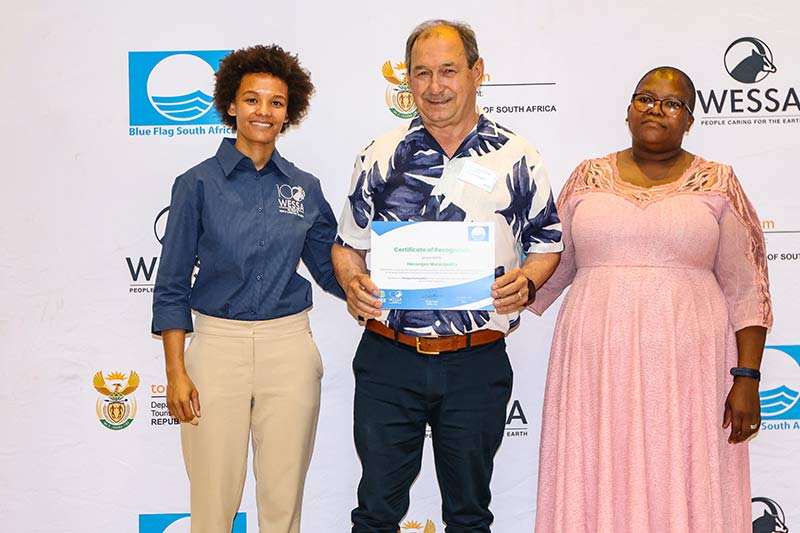
-
Hessequa Municipality ALL BEACHES special recognition
-
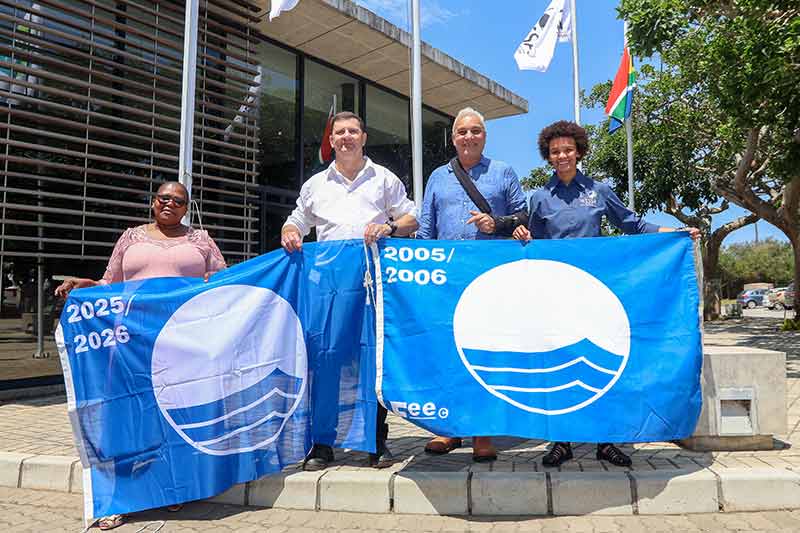
-
Ndlambe Municipality 20 years
-
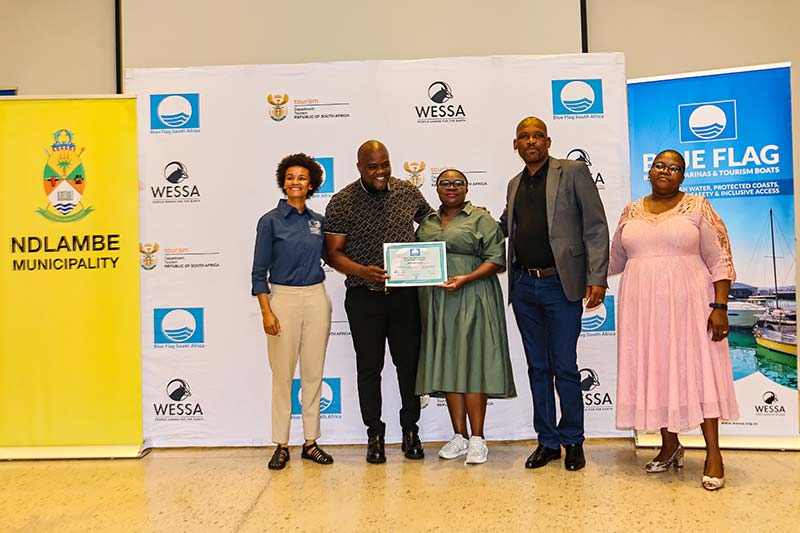
-
10 years Blue Flag status Hibberdene Beach
-
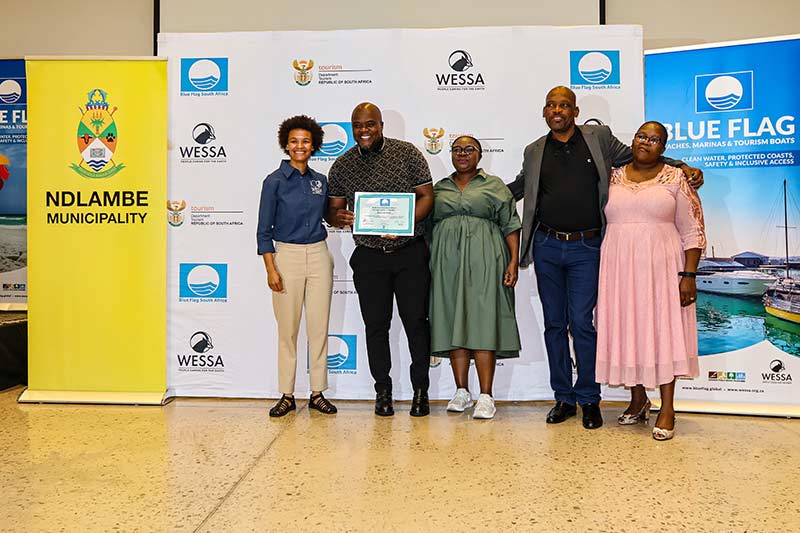
-
15 Year Blue Flag status Umzumbe Beach
-
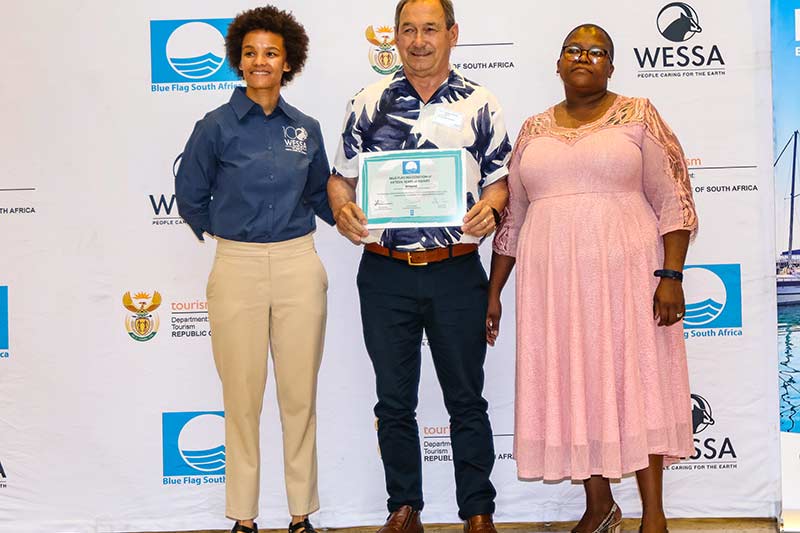
-
15 Years Blue Flag status Witsand
-
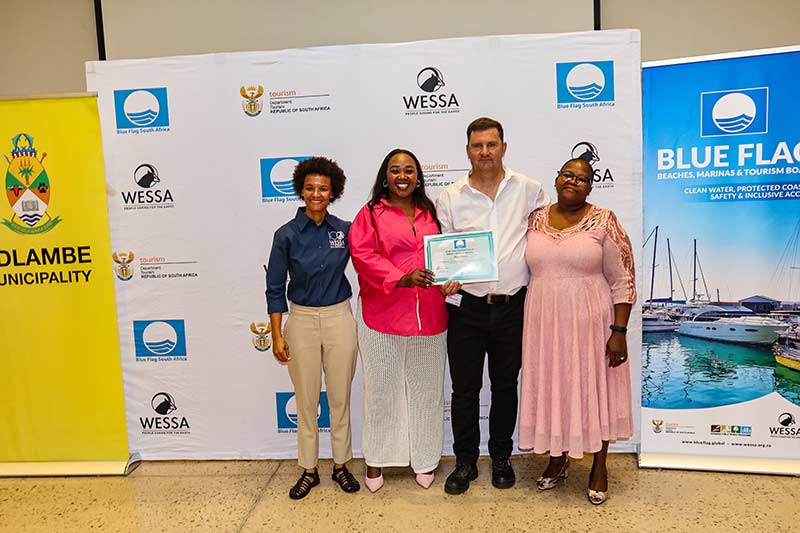
-
20 Years Blue Flag status Kelly’s Beach
Click here to view more photos.
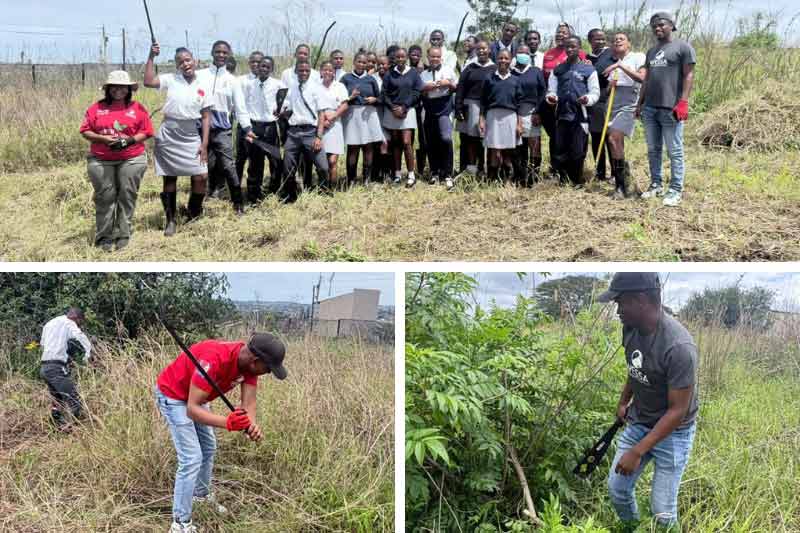
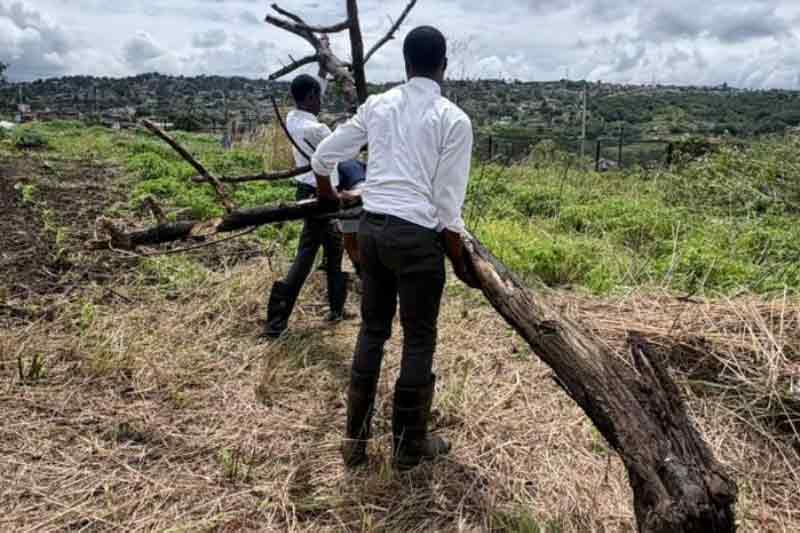 Pictured above: Learners doing some heavy lifting
Pictured above: Learners doing some heavy lifting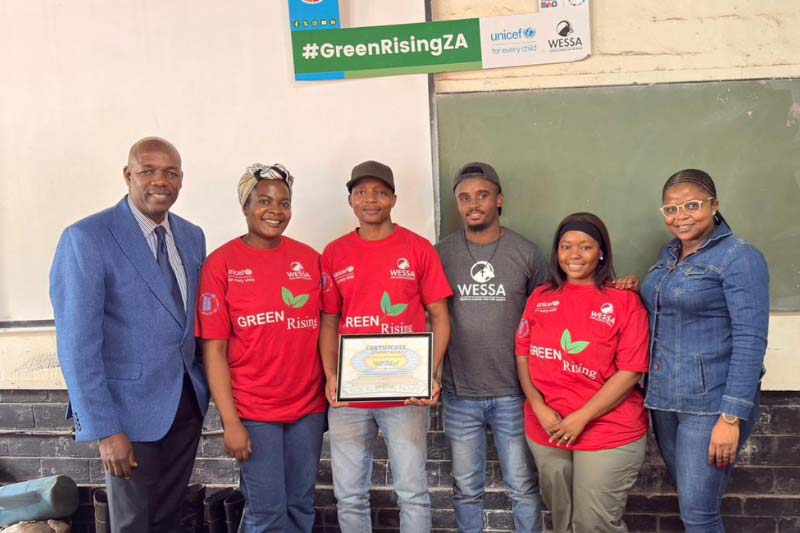
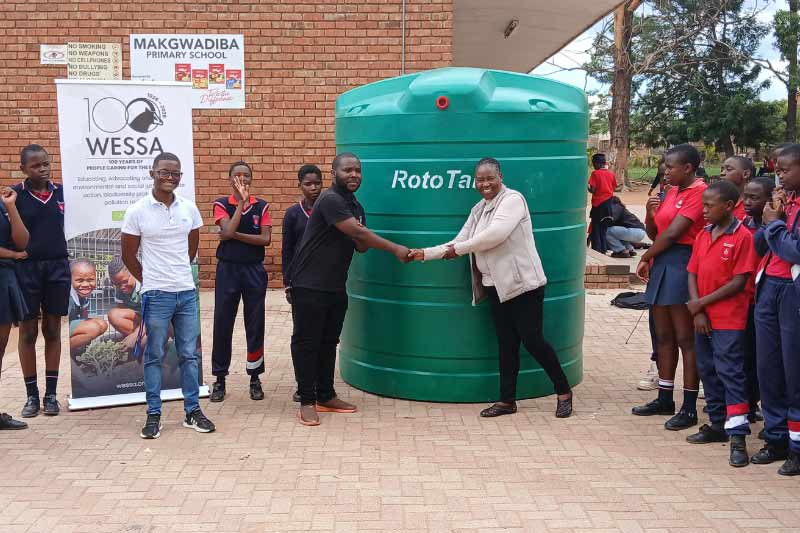

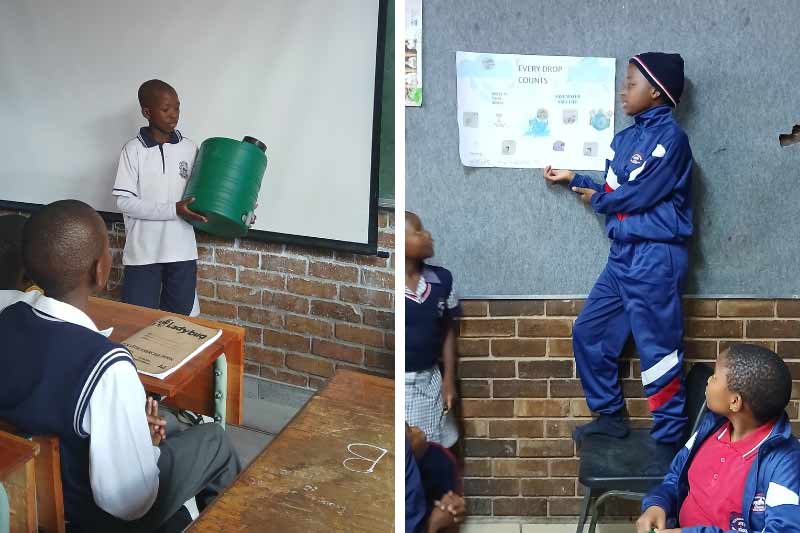
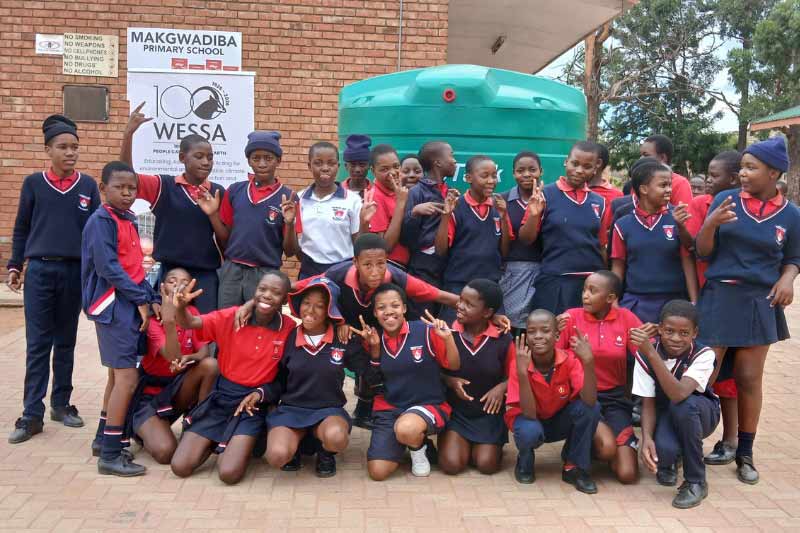
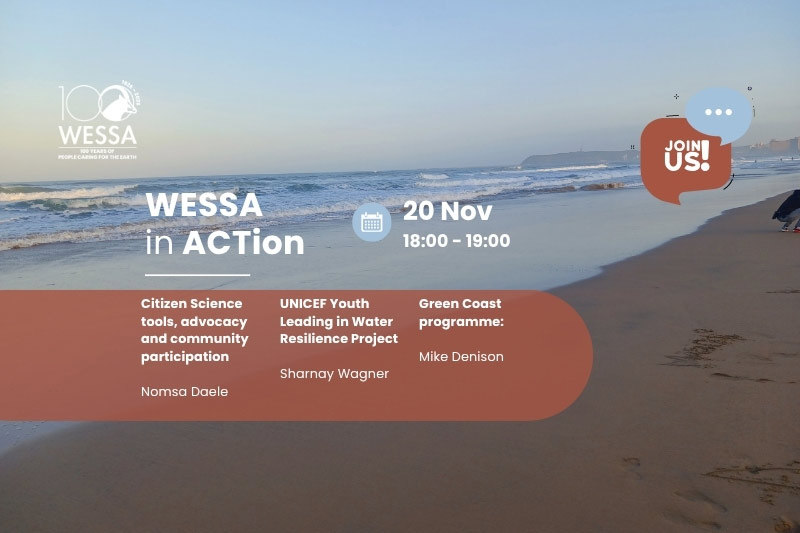
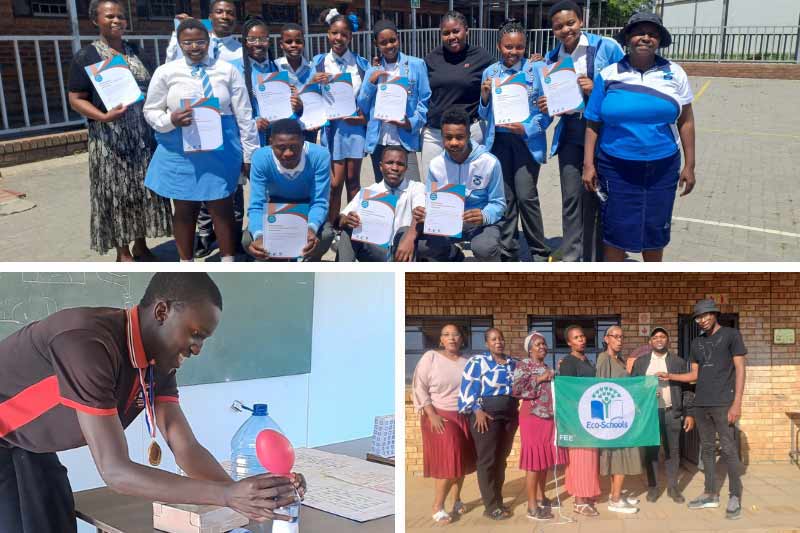
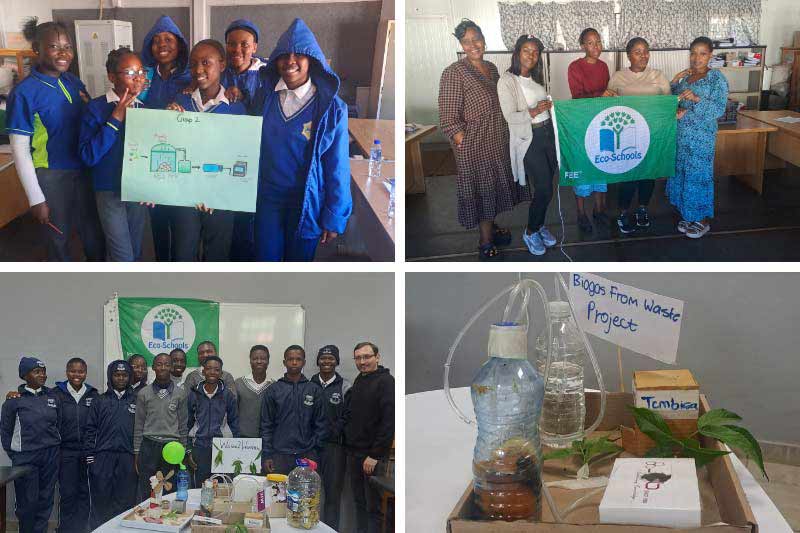
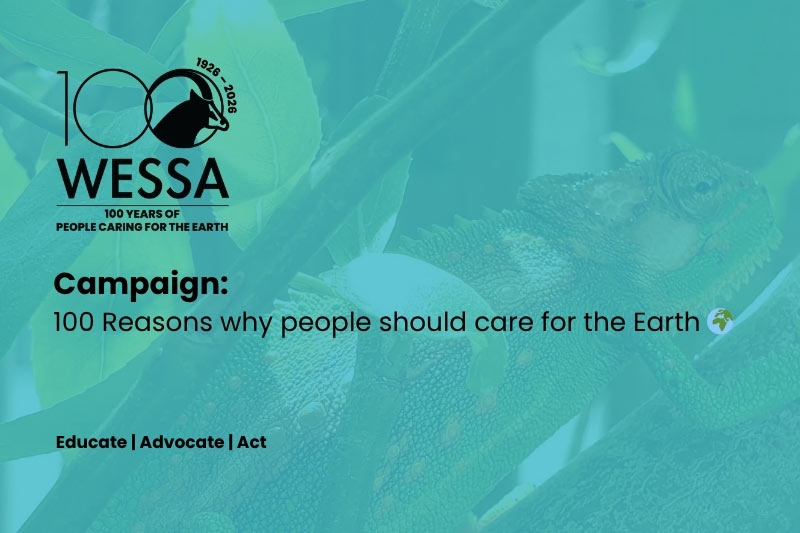
![WESSA announces 2025/26 Blue Flag and Green Coast sites [97 beaches, marinas, boats and communities recognised]](https://www.wessa.org.za/wp-content/uploads/2025/11/blog-header.jpg)





